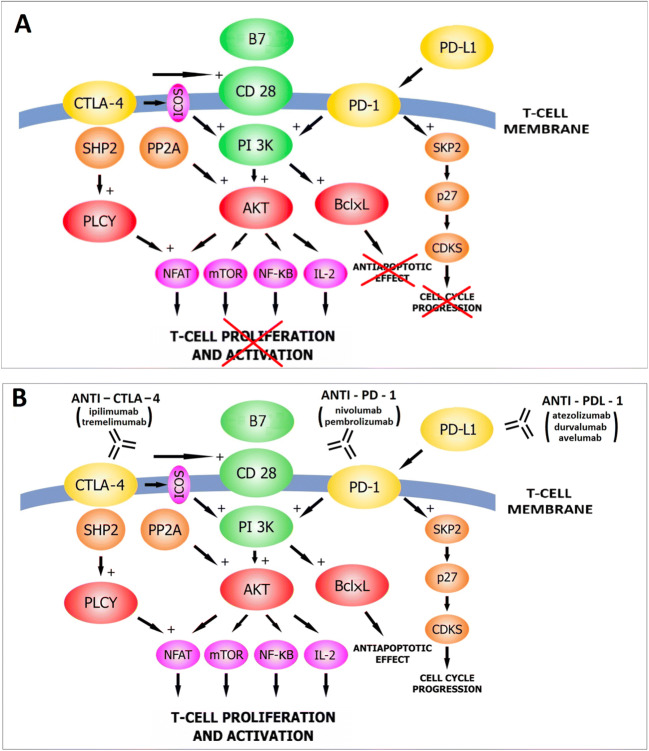Fig. 3.
The role of immune checkpoint inhibitors (anti-PD-1, anti-PD-L1, anti-CTLA-4) in T-cell lymphocyte reactivation. Inhibited cytotoxic T lymphocyte functions in cancer patients (A). ICIs reactivate T-cells and thereby reinforce immunity against cancer (B). The use of two checkpoint inhibitors in concert (anti-PD-1/PD-L1 and anti-CTLA-4) is justified by their complementary mechanisms of action (B). CTLA-4, cytotoxic T-lymphocyte-associated antigen 4; Shp2, protein tyrosine phosphate 2; PLCY, phospholipase C gamma; ICOS, inducible T-cell costimulator (CD 278); PP2A, protein phosphate 2A; B7, B7-1 (CD 80), B7-2 (CD 86); PI 3K, phosphatidylinositol 3-kinase; AKT, protein kinase B; NFAT, nuclear factor of activated T-cell; mTOR, mammalian target of rapamycin; NF-KB, nuclear factor kB; IL-2, interleukin 2; BclxL, B-cell lymphoma extra-large; PD-1, programmed cell death protein 1; PD-L1, programmed death-ligand 1; SKP2, S-phase kinase-associated protein 2; p27, protein regulating cell cycle; CDKS cyclin-dependent kinases

